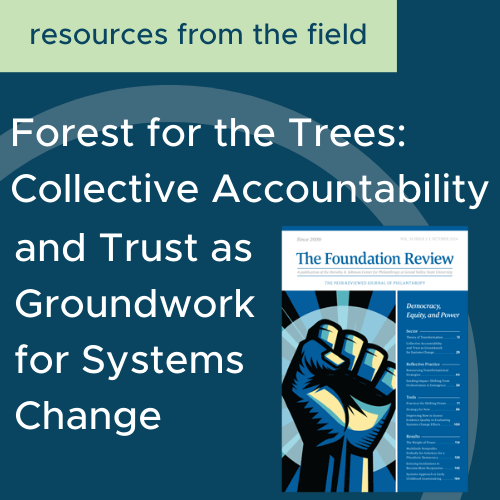
Forest for the Trees: Collective Accountability and Trust as Groundwork for Systems Change
In this Foundation Review article, Shaady Salehi and Pia Infante unpack the meaning of accountability in a trust-based philanthropy context: relational accountability—through reciprocity and trust in the funder-grantee relationship—as well as collective accountability to the communities being served.
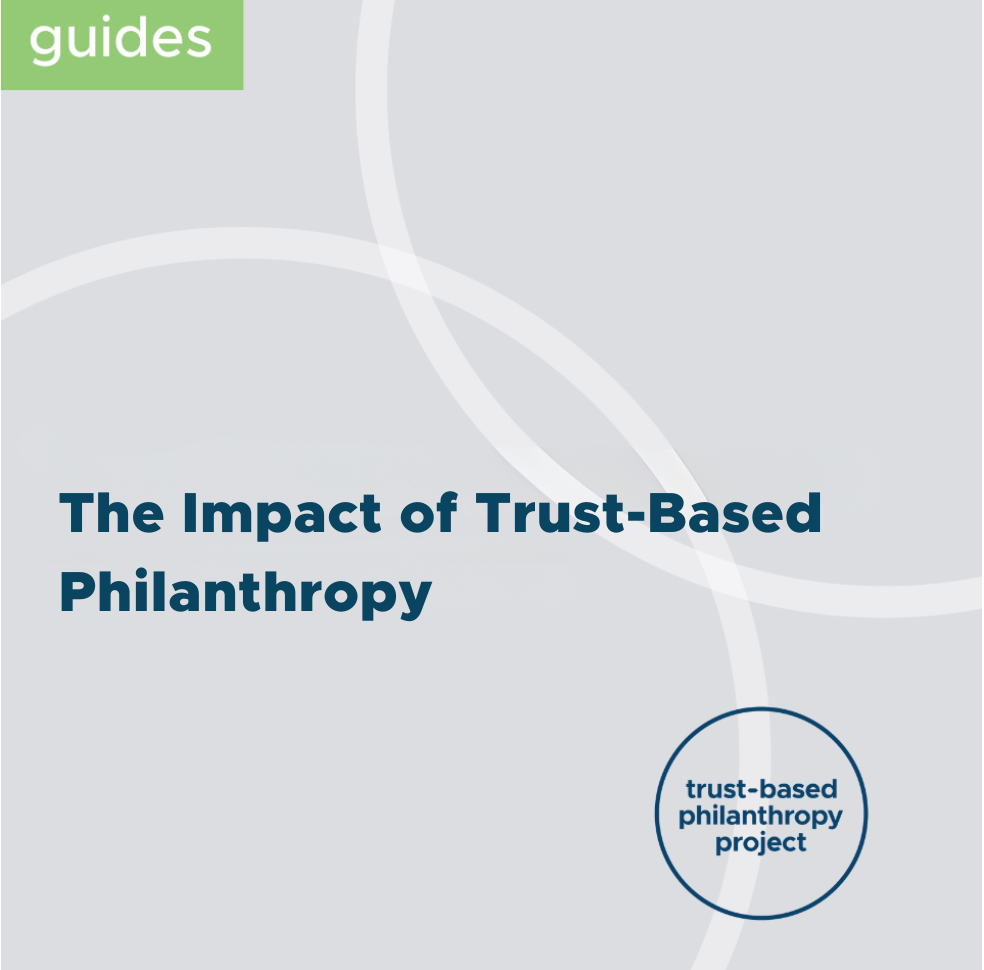
The Impact of Trust-Based Philanthropy
This guide gives an overview of the impact made possible when shifting to a trust-based approach, including impact on nonprofits, funders, communities, and the social sector. Trust-based funders are consistently seeing various opportunities for reflection, assessment, and positive outcomes–painting a bigger-picture of the positive impact on organizations and the social sector ecosphere.

Misperceptions About Trust-Based Philanthropy DEBUNKED
This guide outlines five common myths and misperceptions that come up in discussions about trust-based principles, and offers clear counterpoints in response.

Reimagining the Program Officer Role
This two-page guide, invites you to reimagine the program officer role in a radically different way - away from conventional norms of compliance and oversight, and towards trust-based norms of partnership, collaboration, and service.

What is trust-based philanthropy?
New to trust-based philanthropy? Check out this short animation that walks you through the core of what the trust-based philanthropy approach is.

210 Goodbyes: Lessons From Ending Grantee Relationships
This resource from the S.D. Bechtel Jr. Foundation provides guidance and practical steps for how to navigate the ending of a grantmaking relationship in a way that maintains your grantee partner’s needs in mind.
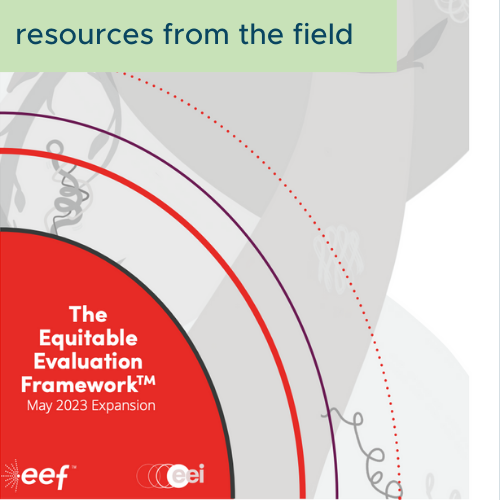
The Equitable Evaluation Framework (EEF)
This resource from the Equitable Evaluation Framework™ (EEF) provides guidance on how to align your purpose, practices, processes, and policies with your foundation’s stated values and intentions.
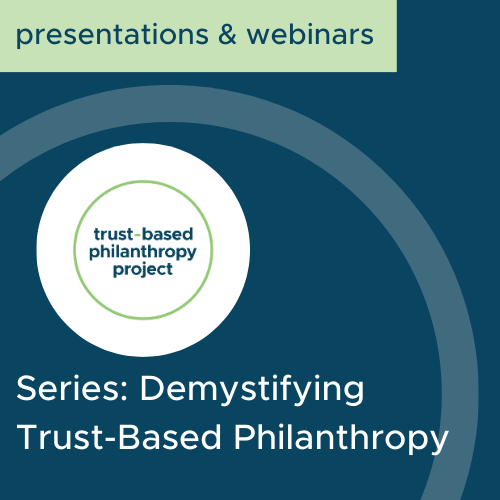
6-Part Series: Demystifying Trust-Based Philanthropy
In this six-part webinar series, the Trust-Based Philanthropy Project and featured speakers address common questions, clarify misconceptions, and explore ways to overcome obstacles in implementing trust-based philanthropy.
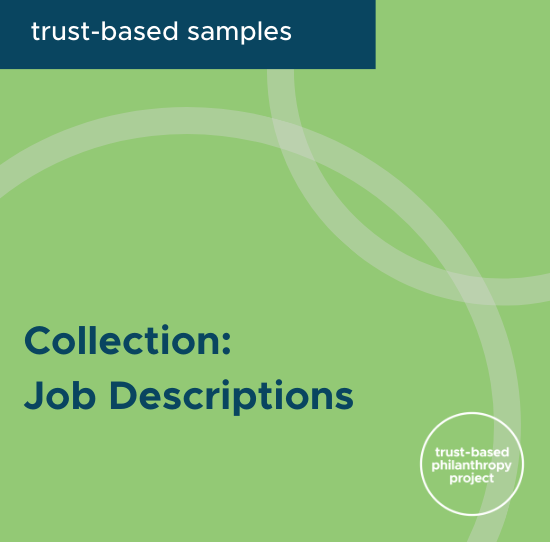
Sample Collection: Job Descriptions
These sample variety of job descriptions offer guidance for funders seeking to incorporate trust-based values in their staff roles.

Doing the Homework
This guide provides insight on what it really means to do the homework and outlines action steps funders can take to meaningfully incorporate this practice in their organizational structure, culture, and relationships.

Series: Trust-Based Philanthropy for Community Foundations
This two-part series, a partnership between the Trust-Based Philanthropy Project, Philanthropy Northwest, and the Iowa Council of Foundations, is designed for community foundations that are actively working to embrace trust-based philanthropy. This series explores how trust-based philanthropy plays out in the unique context of community foundations working at the intersection of grantmaking, fund development, donor relations, and community leadership

Support Beyond the Check
This one-pager outlines concrete steps funders can take today in their organization’s culture, structure, and leadership to support their grant partners beyond the check
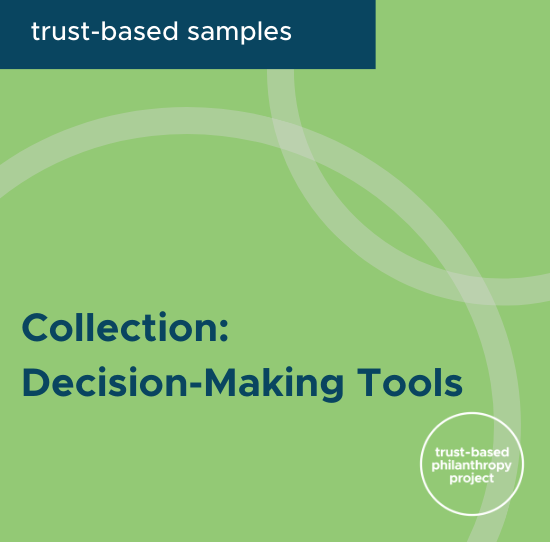
Sample Collection: Decision-Making Tools
Check out these trust-based decision-making tools designed to support the grantmaking decision process

Trust-Based Philanthropy vs. Conventional Grantmaking
While two institutions may share the same mission, how they carry it out can vary widely. Trust-based philanthropy flips the script on conventional philanthropy by promoting a culture of sharing power, centering relationships, and fostering mutual accountability. While the two approaches are not always diametrically opposed, this overview highlights some key areas of distinction wherein trust-based philanthropy reimagines conventional norms.

Planet & Partnership: Funding Climate Solutions via Equitable Partnerships
For corporate philanthropy to be more equitable and impactful, we need to examine and reimagine the way we do our work to better center the experiences of leaders who are on the frontlines of the issues we seek to address. As businesses and funders, we can accelerate climate solutions that advance equity while at the same time shifting power dynamics within traditional philanthropy, and building authentic and mutually accountable relationships with frontline and local communities. How do we build these relationships?
In this webinar, the team at The Trust Based Philanthropy Project will share a framework for more equitable and effective grantmaking partnerships as we hear from community partners and B Corp funders who are operationalizing trust-based practices.

Enabling Trust-Based Practices: 4 Tips for Grants Management Systems
This guide provides specific suggestions for a key element of trust-based structures: The grants management system. It is designed to provide a set of concrete features, integrations, and accessibility standards that you can use to advance your trust-based operations.
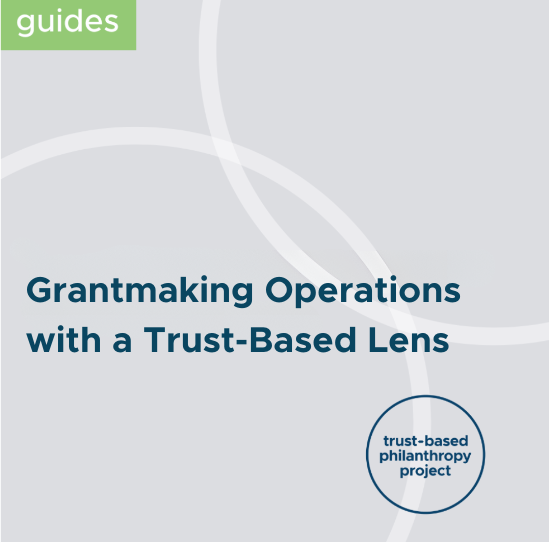
Grantmaking Operations with a Trust-Based Lens
This guide draws on the experiences of funders who have applied a trust-based lens to their grantmaking operations to identify the key ways that grantmaking practitioners can operationalize their grantmaking processes in ways that center the needs of their grant partners.
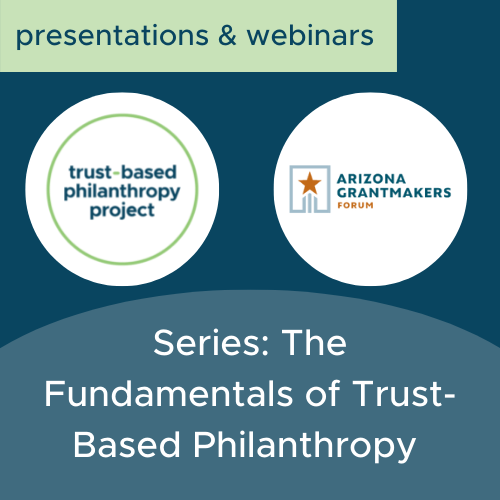
Series: The Fundamentals of Trust-Based Philanthropy
This two-part series dives into the six practices of trust-based philanthropy and the culture, structures, and leadership necessary for funders to bridge the values-to-practice gap and embody a trust-based approach.

Roadmap to Trust-Based Transformation
This one-pager provides a snapshot of some of the key milestones for trust-based transformation and how they connect to your organizational culture, structures, leadership, and practices.
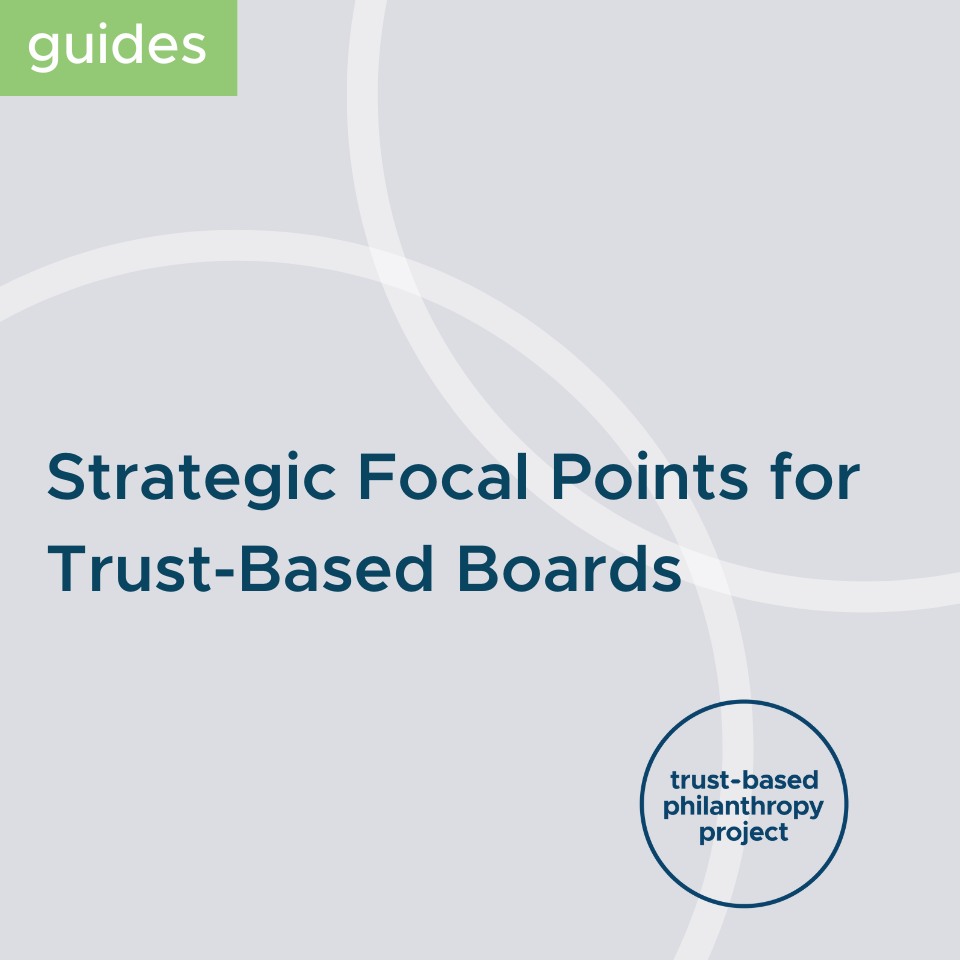
Strategic Focal Points for Trust-Based Boards
This guide outlines the four, non-mutually exclusive focal points—learning, strategy, grantmaking, and imagination—in which foundation boards can direct their time and attention when stewarding trust-based organizations.
